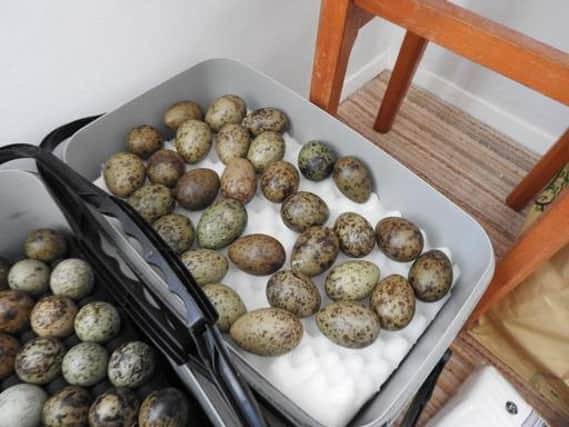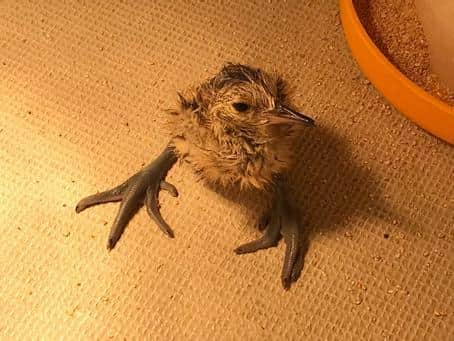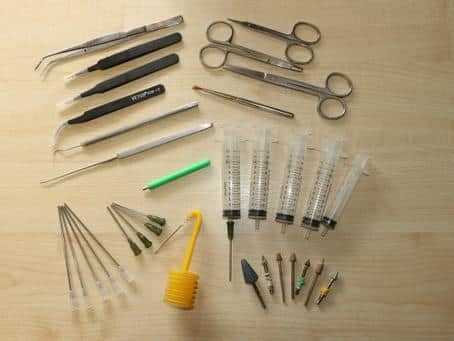Egg thief sentenced for stealing from endangered wild birds in the Peak District and Holmfirth


Mr Potter, 63, was given a 12-week sentence, suspended for 12 months, today, (23 April) at Sheffield Magistrates' Court, for offences relating to the taking and possession of wild birds’ eggs.
He was charged with two counts of possessing items capable of being used to take and possess birds’ eggs, three counts of possession of a wild bird eggs (179 black-headed gull eggs, eight golden plover eggs and seven curlew eggs) and three counts of taking wild bird eggs.


Advertisement
Hide AdAdvertisement
Hide AdMr Potter, from Upper Cumberworth, admitted taking the wild bird eggs including those belonging to endangered species, in February this year.
In April last year local gamekeepers reported a man searching amongst the heather near the Woodhead Pass, near Holmfirth, where birds were known to be nesting.
South Yorkshire Police tracked down Mr Potter, intercepting him on moorland within the Peak District National Park on 30 April 2020.
When police officers executed a search warrant at his home in Upper Cumberworth, assisted by the RSPB, they discovered a stash of nearly 200 eggs – including curlew, golden plover, black-headed gull and some overseas species – stored in cabinets, drawers, trays and plastic containers.


Advertisement
Hide AdAdvertisement
Hide AdThe collection was seized, along with an egg-blowing kit and various equipment.
While searching Potter’s home, officers also discovered an incubator containing seven live eggs, including three curlew eggs. These were taken to bird-rearing specialists near Hull where three golden plover and one curlew chick hatched. Once the chicks were fully grown, they were released back into the wild.
During sentencing today at Sheffield Magistrates’ Court the magistrate said they took a particularly "dim view" of Potter’s claim to be a wildlife expert, and that Potter "had not acted with wildlife’s best interests at heart."
Tom Grose, an investigations officer for the RSPB, added: “We are pleased with today’s outcome, which sends a strong signal that such thoughtless destruction of wildlife, for personal gain,
will not be tolerated.
Advertisement
Hide AdAdvertisement
Hide Ad"Among Potter’s collection were seven curlew eggs – these are a declining, red-listed species which conservationists are working hard to bring back from the
brink.
"Birds should be allowed to flourish in their natural environment, where they can be enjoyed by all.
"Thankfully, these days egg collecting is largely a thing of the past and court cases like this one are becoming increasingly rare. We are grateful to the individuals who reported this man’s suspicious behaviour, and to South Yorkshire Police for such a thorough investigation.”
Previously Mr Potter had been convicted of egg collecting offences in 2013.
Advertisement
Hide AdAdvertisement
Hide AdIt is illegal to intentionally take or possess the eggs of any wild bird contrary to the Wildlifeand Countryside Act 1981.
The sentencing comes just days after World Curlew Day, which aims to raise awareness of the plight of this familiar countryside bird, whose long, curved bill and haunting, bubbling call
is so evocative for so many.
The UK is a crucial stronghold for breeding curlews, hosting around a quarter of the world’s population. Yet in the UK numbers have almost halved since the mid-1990s.
__________
Support The Yorkshire Post and become a subscriber today.
Your subscription will help us to continue to bring quality news to the people of Yorkshire. In return, you'll see fewer ads on site, get free access to our app and receive exclusive members-only offers. Click here to subscribe.
